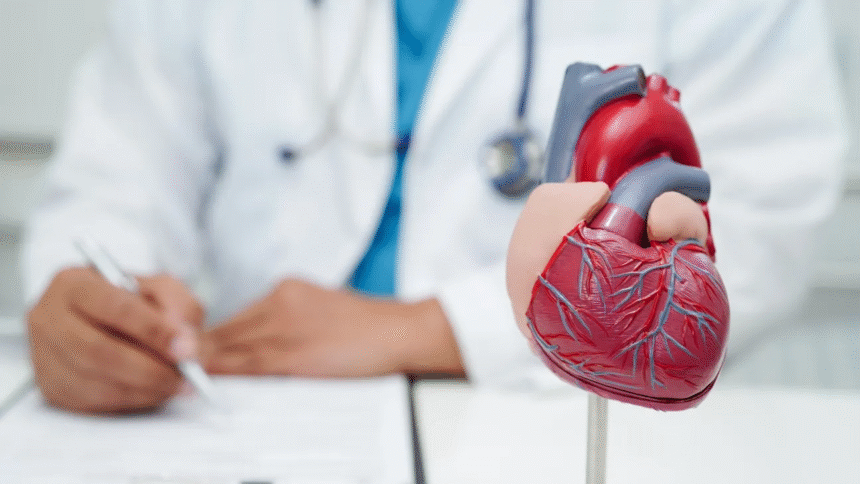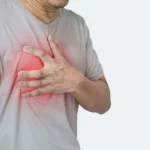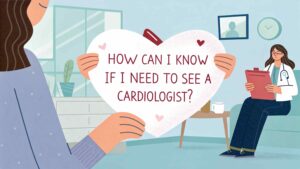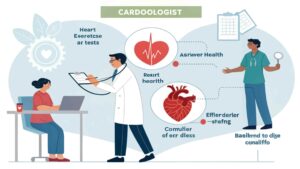Introduction
Heart disease often develops silently, with mild or confusing symptoms that people may ignore. However, catching these early signs can prevent serious complications like heart attacks or strokes. Recognizing the subtle indicators allows for timely medical intervention and better long-term heart health. Early diagnosis can save lives and greatly improve quality of life.
Chest Discomfort or Pain
One of the most common early signs of heart disease is chest pain, also known as angina. This discomfort may feel like:
- Tightness or pressure
- Burning or squeezing
- A feeling of heaviness
It usually occurs during physical activity or stress and goes away with rest. If chest pain is persistent or worsening, it may be a warning sign of blocked arteries.
Shortness of Breath
Feeling out of breath while doing activities that used to be easy is an important early warning sign. It may indicate that your heart isn’t pumping efficiently. This can occur with or without chest pain and may worsen while lying flat or during light exercise. It often points to heart failure or poor circulation.
Fatigue and Weakness
Unusual tiredness or a lack of energy for no clear reason—especially after doing simple tasks—can be an early symptom of heart problems. When the heart doesn’t deliver enough oxygen-rich blood, your muscles and organs may not function well. Fatigue is especially common in women with heart disease.
Irregular Heartbeat
Also known as arrhythmia, an irregular or fluttering heartbeat can signal a problem. You may feel:
- A racing heart
- Skipped beats
- Fluttering sensations in the chest
While occasional irregularities can be harmless, frequent or sustained arrhythmias may indicate an underlying heart condition.
Swelling in the Legs, Ankles, or Feet
Fluid buildup in the lower extremities (called edema) can be caused by a weakening heart muscle. When the heart can’t pump efficiently, fluid leaks from blood vessels into surrounding tissues. Swelling is often more noticeable in the evening or after long periods of standing or sitting.
Dizziness or Lightheadedness
If you often feel faint, dizzy, or actually pass out, it could be due to reduced blood flow to the brain caused by heart rhythm issues, blocked arteries, or low blood pressure from a weakened heart. These symptoms require immediate evaluation.
Pain in the Neck, Jaw, Back, or Arms
Heart pain isn’t always limited to the chest. Some people—especially women—may feel discomfort in:
- The jaw or neck
- One or both arms
- The upper back
This pain may come and go and can mimic muscle strain or indigestion, which makes it easy to ignore.
Cold Sweats
Sudden, unexplained cold sweating can be a signal of a heart attack. Unlike sweat from exercise or heat, this type of sweating feels clammy and often comes with other symptoms like chest discomfort, dizziness, or nausea. Seek immediate medical help if this occurs.
Nausea or Indigestion
Some people, especially women, may experience nausea, stomach pain, or indigestion as a sign of heart trouble. If you frequently feel this way, especially with exertion, it may be more than just a digestive issue and should be evaluated by a doctor.
Snoring or Sleep Apnea
Loud snoring or waking up gasping for air may indicate sleep apnea, a condition strongly linked to heart disease. Sleep apnea affects breathing during sleep and causes oxygen levels to dip, straining the heart and raising the risk of arrhythmias and high blood pressure.
Conclusion
Heart disease can begin with mild, non-specific symptoms that are easy to overlook. Knowing the early signs—such as chest discomfort, fatigue, irregular heartbeat, and shortness of breath—can help you act fast. If you experience any of these warning signs, especially in combination, it’s critical to consult a cardiologist. Early intervention can make a major difference in preventing serious heart events and maintaining good cardiovascular health.
FAQs
What are the first signs of a heart attack?
Chest discomfort, shortness of breath, cold sweats, and pain in the jaw or left arm are common early signs.
Can fatigue be a sign of heart disease?
Yes, unexplained or persistent fatigue can indicate that the heart isn’t supplying enough oxygen to the body.
Should I worry about irregular heartbeats?
Occasional skipped beats may be normal, but frequent or intense irregularities need medical attention.
Is swelling in the feet always related to the heart?
Not always, but heart failure is a major cause of lower body swelling. Other causes include kidney or liver issues.
How do I know if my shortness of breath is heart-related?
If it happens during exertion, gets worse lying down, or is accompanied by chest pain or fatigue, it may be heart-related.
















